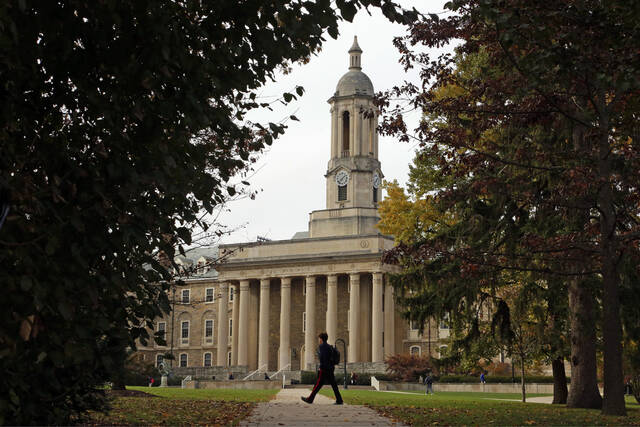Two Democratic lawmakers, one in the House and one in the Senate, are introducing legislation to advance Gov. Josh Shapiro’s proposals to reimagine Pennsylvania’s higher education system.
The system has long been criticized as underfunded by the state and too expensive for students.
The governor on Friday announced the introduction of a bill by Sen. Jay Costa, D-Allegheny, and another by Rep. Peter Schweyer, D-Allentown.
The measures include creating a new State Board of Higher Education to improve coordination between two- and four-year colleges, larger state grants and a $1,000-a-semester cap on tuition and fees paid by Pennsylvanians attending state-owned universities and community colleges, among other moves.
The legislation builds on Shaprio’s “Blueprint for Higher Education,” which was first introduced in February as part of his proposed Commonwealth budget, according to a news release.
The plan even as it was furthur outlined has encountered sharp criticism from Republicans in both chambers, who have said there are too few details. They question the governor’s assertions that the funding needed can be found in the state’s anticipated surplus, and they have made proposals on higher education affordability and how to generate graduates to employer needs.
They include giving support to both in-state and out-of-state students pursuing degrees in high-demand fields such as teaching and nursing,, according to The Associated Press.
“How we get kids, not only to be educated here, but get them to stay here, we’ve got to find a way to bring that all together, because we’re going to have some severe workforce gaps,” Senate Appropriations Committee Chairman Scott Martin, R-Lancaster told AP in April.
State board proposal
Shapiro said the Democrats’ plan “reinvests in publicly funded colleges and universities, improves coordination between institutions of higher education, makes college more affordable, helps close workforce shortage gaps by helping more Pennsylvanians earn college credentials,” according to the news release.
The intent is to create a State Board of Higher Education “to increase coordination between higher education institutions in order to increase accessibility, fill critical workforce gaps, and train students for the jobs Pennsylvania needs.”
A combined system of 15 community colleges and 10 state universities would treat both tiers as equals, and they would equitably split a 15% funding increase in his proposed state budget, Shapiro said of his initial plan.
He says local control would be maintained.
Pennsylvanians making up to the median income would pay no more than $1,000 in tuition and fees per semester at state-owned universities and community colleges.
The plan would also increase Pennsylvania Higher Education Assistance Agency (PHEAA) state grants by $1,000 for students from a family that makes up to the median income, bringing the maximum award up from $5,750 to $6,750 beginning in fiscal year 2025-26.
Affordability
The plan “makes college more affordable, helps close workforce shortage gaps by helping more Pennsylvanians earn college credentials, attracts more people to Pennsylvania and keeps them here, and serves as an economic driver for our Commonwealth for generations to come,” the governor asserted.
Statements released by the governor on behalf of the two-year, state-owned and state-related universities expressed support at least in concept.
“We are pleased the governor and legislature are discussing ways to make college more affordable for students and to build on the strength of (state-owned universities,” said State System of Higher Education Daniel Greenstein in a statement. “This is an important moment for our state to help more people to get the education necessary for rewarding careers in Pennsylvania and to deliver the talented workforce that employers desperately want.”
Quintin Bullock, president of the Community College of Allegheny County, said “Additional resources for our colleges and our students will not only help expand access to education and training and increase academic achievement for our students, these resources will also enable community colleges to continue to meet the Commonwealth’s growing workforce needs”
Richard M. Englert, President of Temple University, said: “We are supportive of the idea of a coordinating body to guide the Commonwealth’s strategy for higher education.
“We also agree that it makes sense to give that body primary responsibility for determining and evaluating performance-based funding metrics, he added. “The metrics included in the Blueprint legislation align with the collective work of all the state-related institutions and, therefore, are an appropriate starting point for moving forward.”








